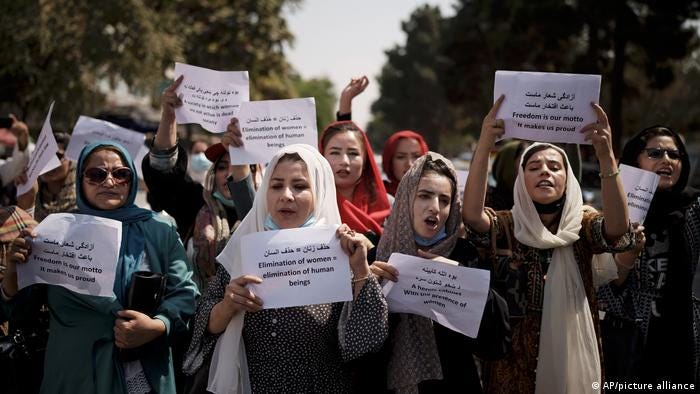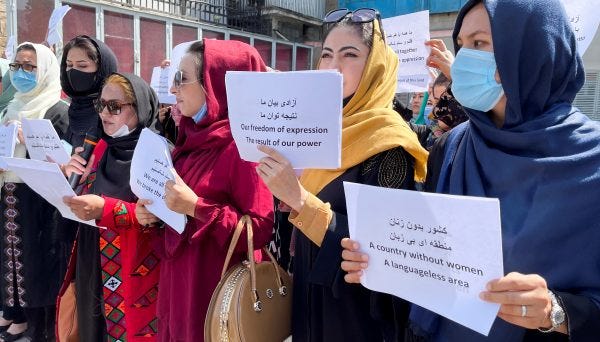Afghan translator: ‘I will use my education to serve Afghanistan’
Gul Nifa Ahmadzai is pursuing peace and progress through her education and work as a translator with Ideas Beyond Borders

Banning women's education drastically changed Afghan lives.
In circumstances of frightening uncertainty, translation is the single source of stability for Gul Nifa Ahmadzai and her family. Her work as a translator with Ideas Beyond Borders has given the 24-year-old a source of income and steady employment after the livelihood she relied on was snatched away when the Taliban overran Afghanistan and banned women from work.
“Everyone’s life changed, both financially and in terms of personal security,” says Ahmadzai, who worked at an educational institution before the Taliban seized power in the country on 15 August 2021. Despite previous assurances that they would respect women’s rights, the group was quick to issue edicts banning women and girls from education and most forms of employment. “Women of all classes are now deprived of their work and duties, none of them feels invulnerable,” Ahmadzai says.
Like many others in Afghanistan, where job opportunities were scarce even before the Taliban took power, her family relied on a single income – hers. With the country plunging into an economic crisis amid spiraling food prices and the collapse of the banking system, the outlook was bleak. “Before this, I had a good income and was able to solve my family’s economic problems, but with the arrival of the Taliban, we faced serious financial issues,” Ahmadzai says.
She cast around for work that could be done in secret and last January came across the Ideas Beyond Borders House of Wisdom 2.0 translation project in Afghanistan. She now spends five hours a day translating, working in her bedroom on a laptop, and crosschecking difficult phrases with experienced translators in the IBB team. “This task is both safe for me and a sufficient source of income because if I work outside the home, I might face many problems, such as threats,” Ahmadzai says. “I am grateful to IBB, which helped not only me but also several talented girls I know who have become a vital resource for their families,” she adds.
The House of Wisdom 2.0 Afghanistan team now includes more than 72 translators and provides financial support as well as security, travel advice, and letters of recommendation to secure visas and employment. Since launching in 2021, the project has made more than 1400 articles on critical thinking, science, and human rights available in Pashto and Dari, Afghanistan’s most widely spoken languages. “There are still many people in Afghanistan willing to work under extraordinary circumstances to make knowledge accessible to their fellow citizens, and Ideas Beyond Borders gives them the platform to do this safely,” says Faisal Al Mutar, President and Founder of Ideas Beyond Borders.

Ahmadzai now plans to pursue a career in translation and contribute to the project goal of upholding freedom of speech and access to information in Afghanistan. “Doing this is important because there were very few articles in Pashto online… and it is these translators who develop a place for our language at the global level,” she says. Her dream is for a peaceful, developed Afghanistan where the different classes and diverse ethnicities work together for the progress of the country.
“I want to use my education to serve my country, and I want this project to be extended, to create more job opportunities for us and keep us busy, and to serve the Pashto language so that it joins the list of important internet languages and benefits Afghanistan.”


